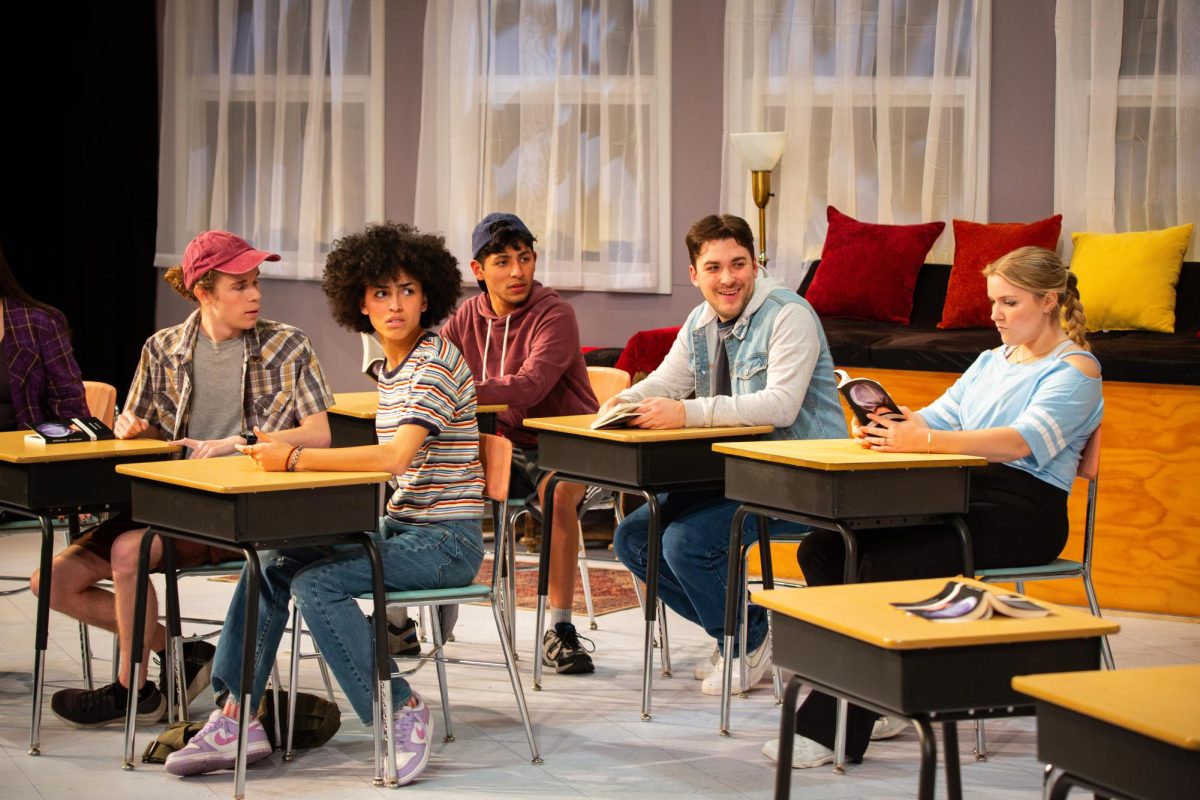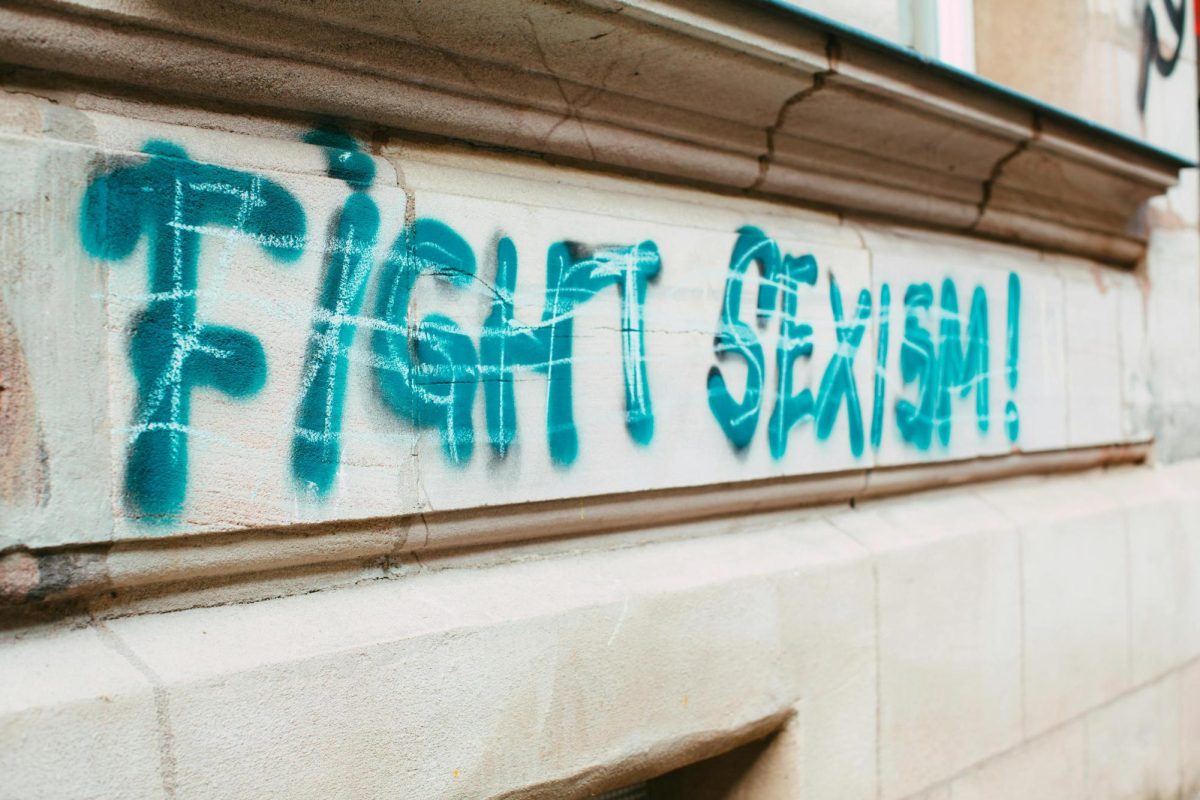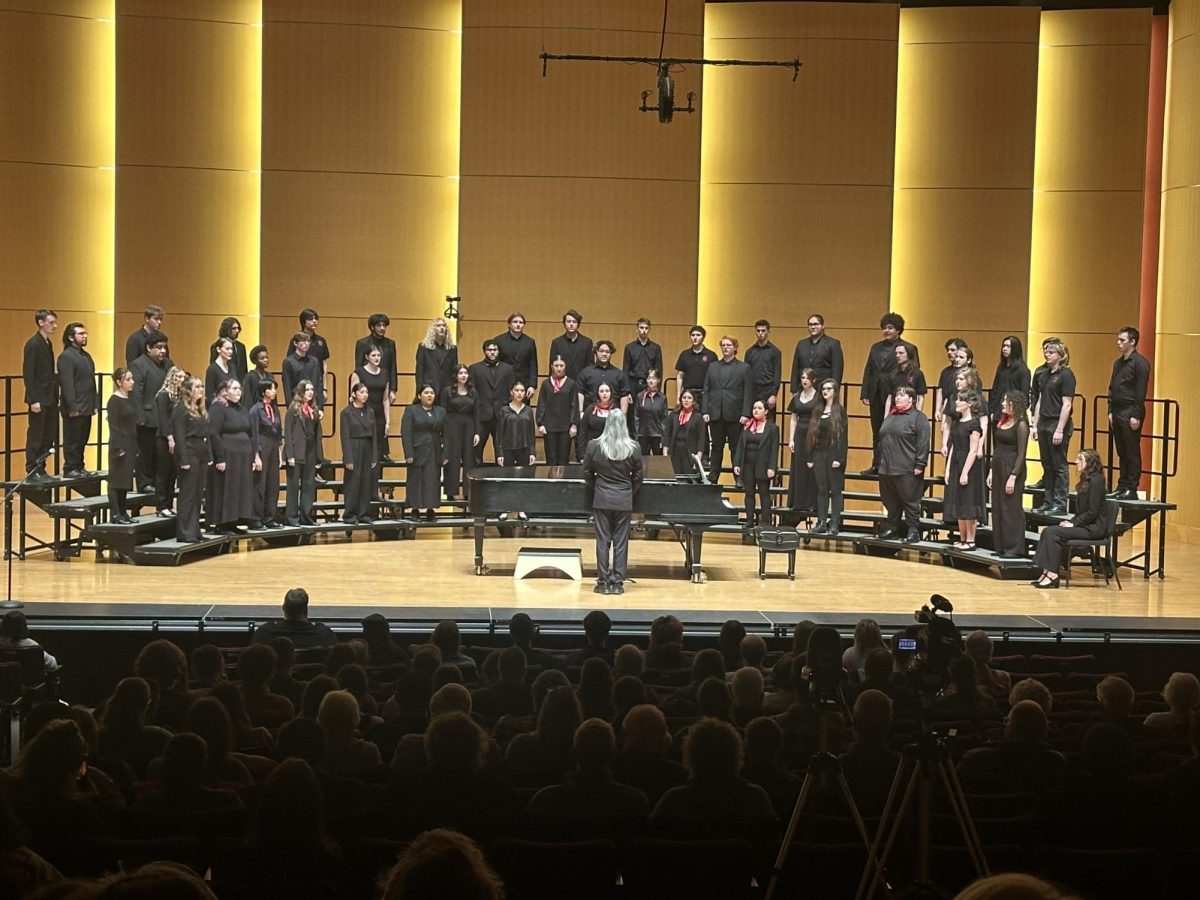The play “John Proctor is the Villain” is “A very nuanced piece with a lot of levels,” Emily Rollie, associate professor in the theatre and film department, co-coordinator of the BFA performance program and director of this year’s fall play “John Proctor is the Villain,” said. “Ostensibly, it is about a class of students in a small high school… in the U.S., who are studying the crucible in 2018 amid #MeToo, and they realized that the events of the world in #MeToo are directly impacting them in class, and the ways that the play they’re reading about is actually playing out in their real lives.”
According to Rollie, “John Proctor is the Villain” has “caught fire across the country.” With its Broadway debut in March 2025, the play provides relevant social commentary about the way society perceives women. “Though it’s set in 2018 amid #MeToo… the play is about young women’s voices being honored and amplified in ways that the white, patriarchal culture in which we live doesn’t always honor,” Rollie said. “It resonates in the 2018 moment and today. Arguably even more today amid everything going on in this world around control of women’s bodies… and voices.”
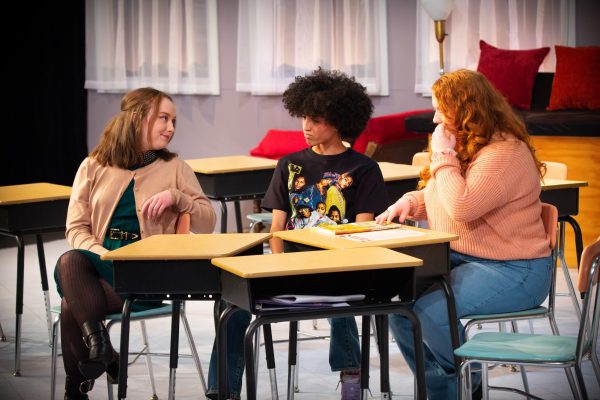
Kimberly Bellflower, playwright for “John Proctor is the Villain,” chose to only allow the play to be licensed by educational institutions before its Broadway run. “The playwright is like ‘Only colleges and high schools can do this,’” Rollie said. “I think she’s really interested in how this actually supports young people.” Which is close to the reason why Rollie chose to direct this play in the fall at CWU.
“I think it’s so important to do on a college campus,” Rollie said. “Because it’s about the power of young people’s voices, and the power of community within that.” Rollie continued this notion by mentioning previous directors of this work have described the message as the power of sisterhood specifically, and how that breaks moments of patriarchal control.
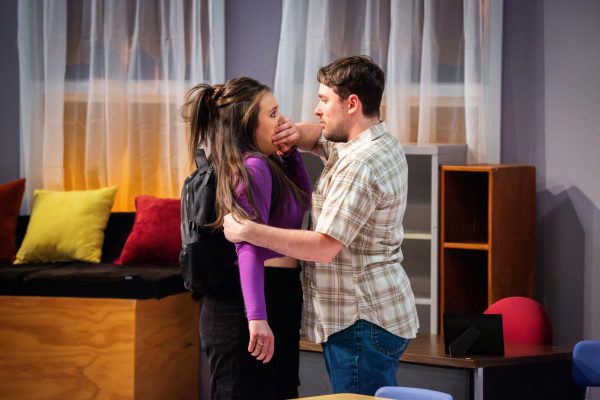
Beyond the connection on campus, Rollie spoke on how the small town in the play was similar to Ellensburg. “It’s set in a small town,” Rollie said. “Ellensburg is not big. So how do rumors get spread? How do things get misidentified? Who do we believe? And how do we believe them?” Rollie continued to mention the timeliness of this play among the recent election.
“I think there’s so many young people who have visions for the future that didn’t play out… where the election ended up,” Rollie said. “So I think the way this amplifies young voices… [and] ends with a moment of hope for the future is powerful.” Rollie picked out a specific quote from a monologue at the end of the play that she said rang in her brain on election night. “One day, the world we were promised will actually be new.”
With the nuanced and timely elements of this play grappling with difficult subjects, “The play is funny as well,” Rollie said. “It has to be funny to make space for the hard stuff… So it’s funny, it’s profound, and there’s hope at the end. Which also makes it really helpful right now.”


